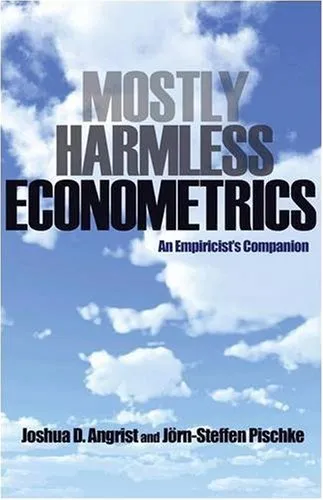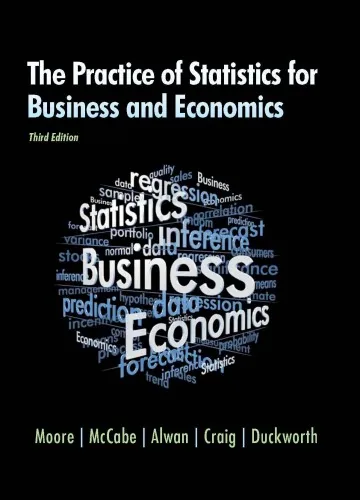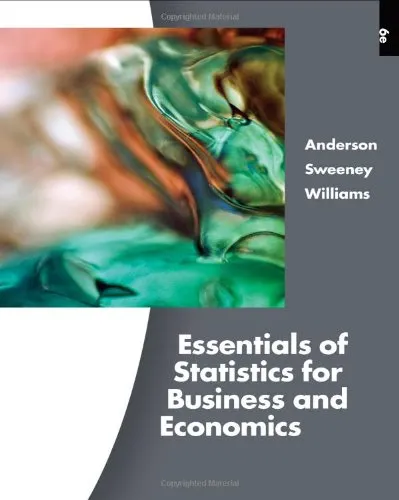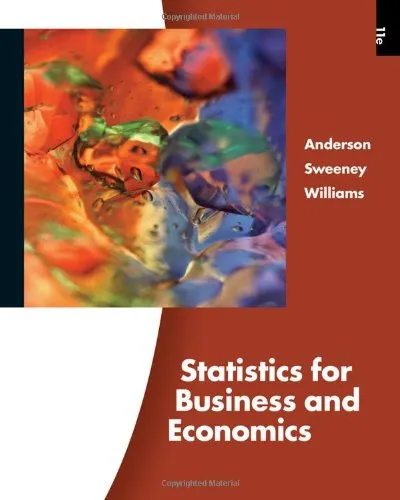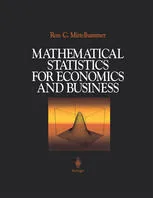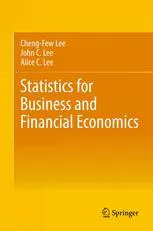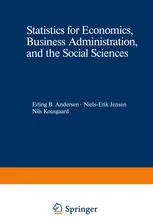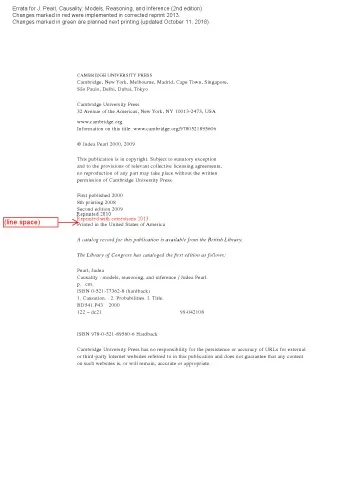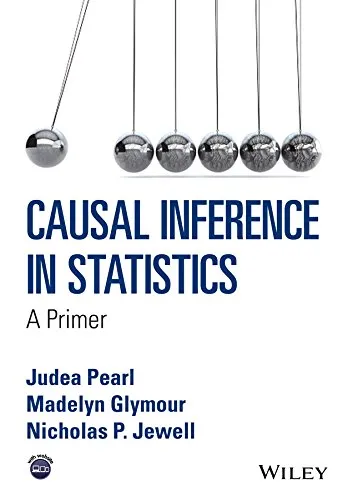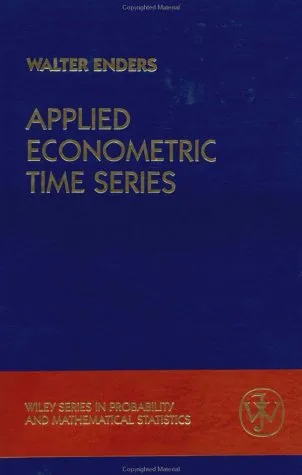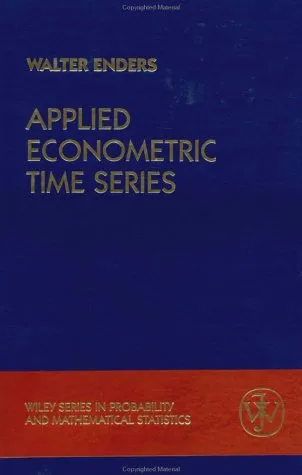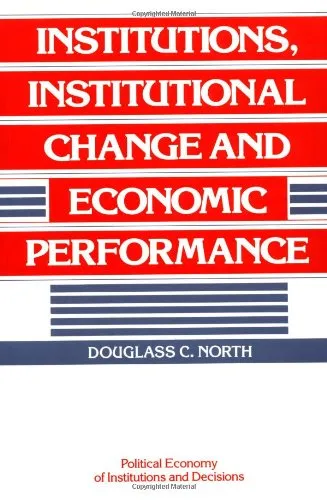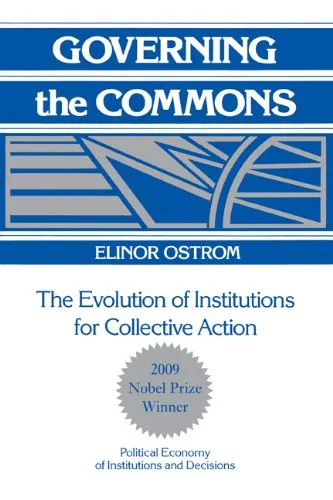Mostly Harmless Econometrics: An Empiricist's Companion
4.6
Reviews from our users

You Can Ask your questions from this book's AI after Login
Each download or ask from book AI costs 2 points. To earn more free points, please visit the Points Guide Page and complete some valuable actions.Related Refrences:
Introduction to "Mostly Harmless Econometrics: An Empiricist's Companion"
"Mostly Harmless Econometrics: An Empiricist's Companion" is an essential guide for economists, statisticians, and data scientists who want to master the application of econometric tools in real-world settings. Written by Joshua D. Angrist and Jörn-Steffen Pischke, this book provides an insightful and highly practical introduction to econometric techniques, combining clarity, humor, and rigorous analysis. It has become a foundational text for anyone pursuing empirical research in economics and related fields.
The book emphasizes real-life problems and how to address them using advanced econometric methods with a focus on causal inference. Unlike many traditional econometric books, which may feel dense or overly theoretical, "Mostly Harmless Econometrics" distills complex topics into their essentials while prioritizing practical applications. Its emphasis on intuition, combined with formal rigor, equips readers with tools to think critically about data, evidence, and policy intervention.
Detailed Summary of the Book
At its core, "Mostly Harmless Econometrics" is built around the themes of causal inference and transparency in empirical work. The authors focus on methods that are commonly used in cutting-edge economic research, such as regression analysis, instrumental variables, difference-in-differences, and regression discontinuity designs.
The book begins with an engaging discussion on why causality is at the heart of most empirical research. From there, it methodically introduces regression fundamentals and builds towards more advanced concepts. Instrumental variable techniques are explored in-depth, explaining how they help address endogeneity issues in observational studies. The practical relevance of these methods is underscored with examples drawn from economic research and policy evaluation.
Later chapters delve into robustness checks, practical econometric modeling, and the nuances of standard errors in econometric analysis. The authors shine in their ability to simplify complex topics while instilling an understanding of the science behind the methods. The text is peppered with real-world examples and practical tips to help readers apply these techniques seamlessly in their own work.
By avoiding unnecessary mathematical derivations, the book offers a highly approachable but meticulously researched treatment of advanced econometric methods. Rather than being a catch-all econometrics text, it intentionally serves as a laser-focused companion for researchers devoted to causal analysis.
Key Takeaways
- The book bridges the gap between econometric theory and application, focusing on what matters most in empirical research.
- Concepts like regression, instrumental variables, and difference-in-differences are explained with clarity and precision.
- The emphasis on causal inference is a central theme, teaching readers how to distinguish correlation from causation rigorously.
- Practical guidance on robustness and standard errors ensures that readers understand how to assess the reliability of their results.
- The conversational tone, combined with a structured approach, makes advanced econometrics accessible even for those without extensive training in the field.
Famous Quotes from the Book
"Good empirical work begins with plenty of skepticism about both theory and data."
"Causality is the holy grail of empirical economics."
"Data alone cannot speak for themselves. Good identification is the key to telling a credible story."
Why This Book Matters
"Mostly Harmless Econometrics" is an essential text for anyone serious about conducting empirical research. Its focus on causal inference is particularly relevant in a world where data-driven decision-making is becoming the norm. Economists, social scientists, and policymakers rely on these tools to make rigorous, evidence-based decisions that shape policy and impact the world.
The practical, example-driven approach of the book enhances the accessibility of advanced econometric concepts, significantly lowering the entry barrier for students and practitioners alike. By demystifying sophisticated methods like instrumental variables and regression discontinuity designs, Angrist and Pischke empower readers to address real-world problems and avoid common pitfalls in empirical research.
Furthermore, the book has become a cornerstone of modern empirical economics, guiding the next generation of researchers to uphold standards of rigor and credibility in an era marked by abundant data and frequent misuse of statistics. Whether you are a student, a seasoned researcher, or simply curious about econometrics, "Mostly Harmless Econometrics" stands as an indispensable resource to deepen your expertise and bolster your analytical skills.
Free Direct Download
You Can Download this book after Login
Accessing books through legal platforms and public libraries not only supports the rights of authors and publishers but also contributes to the sustainability of reading culture. Before downloading, please take a moment to consider these options.
Find this book on other platforms:
WorldCat helps you find books in libraries worldwide.
See ratings, reviews, and discussions on Goodreads.
Find and buy rare or used books on AbeBooks.
1489
بازدید4.6
امتیاز0
نظر98%
رضایتReviews:
4.6
Based on 0 users review
Questions & Answers
Ask questions about this book or help others by answering
No questions yet. Be the first to ask!
